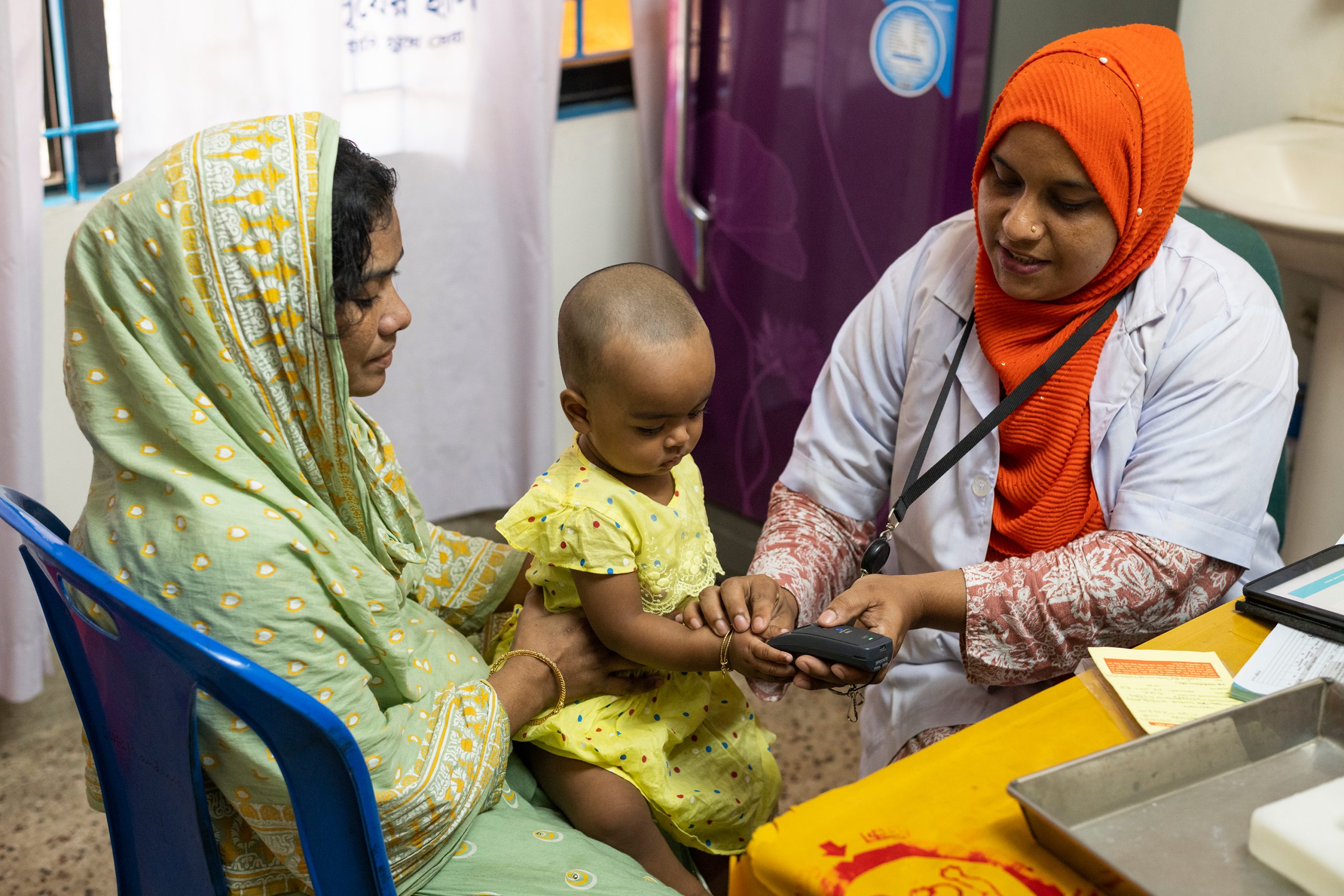- Intel appears stuck between ‘a rock and a hard place’
- “언론은 몰려오고, 내부는 혼돈에 빠지고”···CISO가 직접 겪고 깨달은 보안 사고 교훈 8가지
- AI의 상상과 실사 영화의 콜라보···구글, 단편 영화 앤세스트라 제작 과정 공개
- Select Prime members can get Kindle Unlimited for 3 months at no cost - here's how
- Modernization means putting developers in the driver’s seat
Cisco NGO partner Simprints to advance ethical, inclusive AI for face recognition biometrics

In 2021, Cisco published a blog post on Simprints’ touchless, facial biometric ID technology. See how Simprints is now working to open-source this solution and assemble inclusive and ethical AI training datasets with support from Cisco’s Global Impact Grant program.
The case for biometric identification
Safe, reliable, and portable forms of ID are necessary to access critical services like healthcare and humanitarian aid. But an estimated 850 million people globally lack formal ID, making it challenging for governments, international development organizations, and non-governmental organizations (NGOs) to ensure essential services and resources reach their target populations. To address this problem, nonprofit Simprints has developed a new kind of technology for good: biometric ID, with privacy at its core. Simprints’ biometric solutions give people a safe digital identity and ensure every vaccine, every dollar, and every public good not only reaches those who need them most, but does so accurately, efficiently, and equitably. Research shows a digital biometric registry is 12.5 percent more accurate and can be searched three times faster than paper records. And, biometrically tracking reliable health data over time can play a vital role in assessing the success of campaigns like immunization series.
Cisco began supporting Simprints in 2018 as part of our One Billion Lives goal—an ambitious mission to change one billion individual lives through social impact investments. That year Simprints started testing mobile phone camera-based facial biometrics as an alternative to their existing fingerprint biometric solution, making identification all the more accessible. Operating facial biometrics on Android phones (used commonly in low-resource and last-mile humanitarian contexts) removes the need to produce and distribute separate hardware, thereby cutting costs and increasing scalability. Now, our latest Global Impact Grant is helping Simprints advance their ethical, inclusive face recognition AI and make it open source.
Ethical inclusive AI for face recognition
Face recognition is already widely incorporated into everyday technology, seen in cell phones, security cameras, and even used to tag friends in social media posts. But a 2019 National Institute of Standards and Technology (NIST) that many commercial face recognition solutions exhibit bias; mis-identifying African and Asian faces up to 100 times more than Caucasian faces. This bias, rather than an issue with the technology itself, is a byproduct of training AI matching algorithms with datasets that are predominantly male and Caucasian.
Simprints aims to reduce bias in their face recognition models through rigorous training and testing on diverse data sets. They are also exploring the application of training datasets with synthetically-generated face images, an innovative approach that enables countless variations on characteristics like skin color, hair style, facial features, and facial expressions. In using a synthetic dataset, there is no need to capture and retain personally identifiable information (PII) from real individuals, helping to further maintain data privacy. To foster trust and confidence among their partners and users, Simprints strictly adheres to policies such as the EU’s General Data Protection Regulation (GDPR), and continuously explores and researches state-of-the-art methods in biometric template protection to ensure subjects are shielded from potential harm or misuse of their biometric data.
Impact across geographies
Simprints’ solutions have been used by humanitarian organizations working in Nigeria, Somalia and Kenya to prevent fraud and ensure that cash and aid distribution programs reach the intended recipients. Simprints has also partnered with various international Ministries of Health including Ethiopia, Uganda, Ghana, Bangladesh, and Rajasthan, and continues to explore expansion into new geographies. In Ethiopia, they are engaged in the ground-breaking roll-out of the electronic community health information system (eCHIS), through which patients are registered and identified by Simprints’ fingerprint scanners. In rural Uganda, Simprints is expanding the capacity of frontline community health workers to effectively deliver vaccines that fight infectious diseases such as COVID-19, HPV, hepatitis B, and tetanus. In Ghana, their ground-breaking technology is already improving access to critical maternal and vaccine services in 30 health centers, with a plan to scale reach across 500,000 children by 2025.
Why open source?
Some technology is so valuable, it’s worth gifting to humanity for the greater good. This is why with support from more than 30 organizations, including governments, researchers, and privacy experts, Simprints has embarked on a journey to make their biometric solutions fully open source. With a mission to transform the way the world fights poverty, Simprints is making their code available to the world and inviting developers, partners, advocates, and all those passionate about addressing global challenges to join their collaborative community. By going open source, and integrating with the leading data collection platforms that serve nearly 50% of the world’s population, Simprints envisions to increase their impact tenfold and empower teams to reach 20 million people with healthcare and humanitarian aid.

“We value the ongoing support of Cisco enormously as we continue our journey to becoming a digital public good.
The latest Global Impact Grant is game-changing for us. This new funding enables our team to accelerate the integration of ethical AI into our platforms and supports our move to open source. Together with Cisco, we’re amplifying the impact of our biometric tools, helping ensure thousands more people across the world can access life-saving health and aid.” —Toby Norman, Simprints CEO
For more information:
- To learn more about Simprints, visit their website.
- See how Cisco’s One Billion Lives campaign has supported other NGOs and reached its goal over two years early.
Share:

